Question And Answer
Publications
Articles, publications, books, tools and multimedia features from the U.S. Institute of Peace provide the latest news, analysis, research findings, practitioner guides and reports, all related to the conflict zones and issues that are at the center of the Institute’s work to prevent and reduce violent conflict.

Andrew Cheatham on the Private Sector’s Role in Conflict Resolution
As the international community discusses new approaches for building peace, the private sector is “increasingly a major part of these geopolitical discussions,” says USIP’s Andrew Cheatham, with more and more “partnerships of states and private sector corporations working together to pursue national interests.”
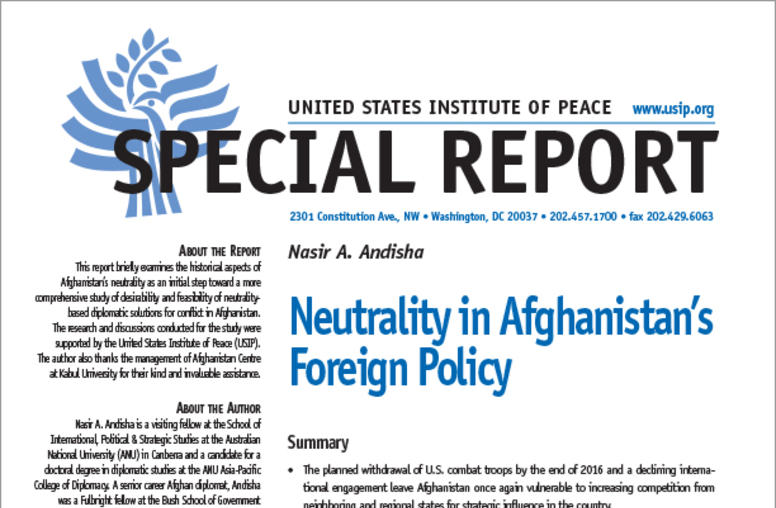
Neutrality in Afghanistan’s Foreign Policy
President Obama’s decision to withdraw all U.S. combat troops from Afghanistan by the end of 2016 leaves that country once again wide open for an intensified regional race for strategic influence in the country. The majority of experts—both Afghan and international—agree that lasting peace and stability in Afghanistan require internationally backed regional arrangements. A recent forum involving high-profile Afghan politicians, former diplomats, and civil society leaders underscores this cons...
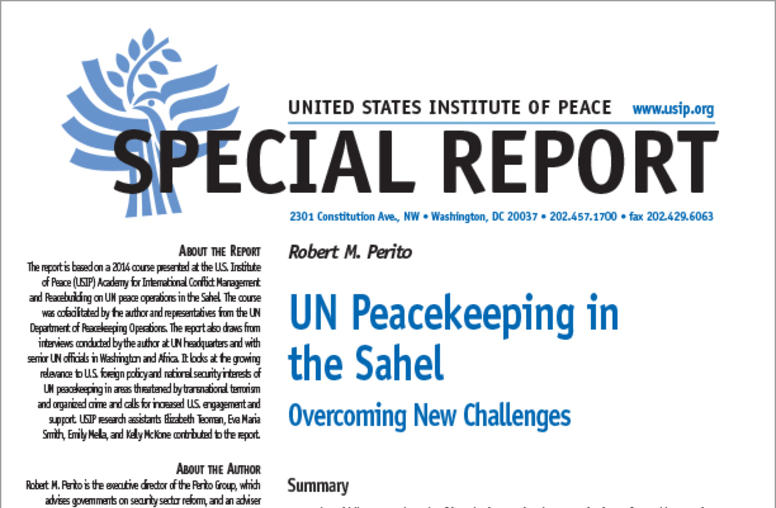
U.N. Peacekeeping in the Sahel: Overcoming New Challenges
New U.N. operations in the Sahel present unprecedented challenges for U.N. peacekeeping. They involve the United Nations directly in the struggle against transnational Islamist terrorism, weapons proliferation, and illicit trafficking by international organized crime. The United Nations must operate in countries with harsh terrain, vast expanses, poor communications, and porous borders. In response, the Security Council adopted more robust mandates based on the peace enforcement provisions of...
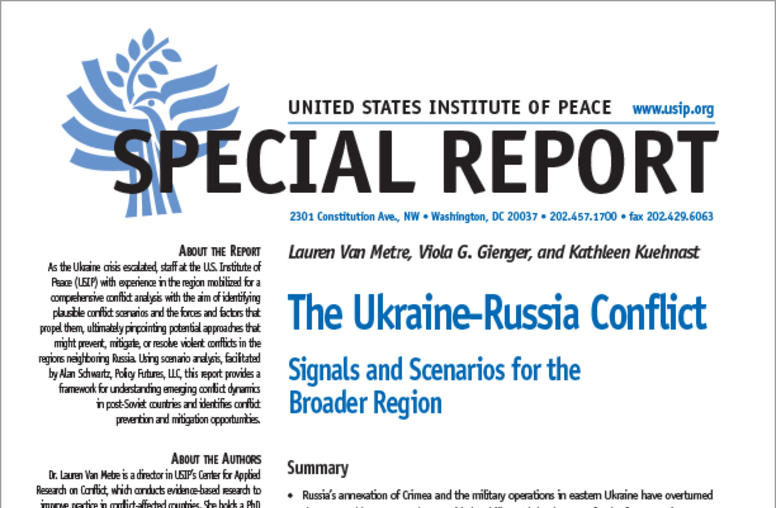
The Ukraine-Russia Conflict
Russia’s annexation of Crimea and its military operations in Eastern Ukraine have overturned the post–Cold War norms that had provided stability and development for the former Soviet countries bordering Russia. As neighboring countries assess their own security situation based on Russia’s aggressive practices in Ukraine and the West’s response, they are actively testing the new contours of Russian and Western engagement, regional alliances and relationships, and regional conflict dynamics.

Keith Mines on Haiti’s Security and Governance Crises
Haiti’s slow decline has led the country to the brink of collapse. And while the international community has offered to help, “there’s just a lot of pieces … that haven’t come together yet,” says USIP’s Keith Mines, adding: “It probably will take a stronger lead by the United States” to restore security and governance.
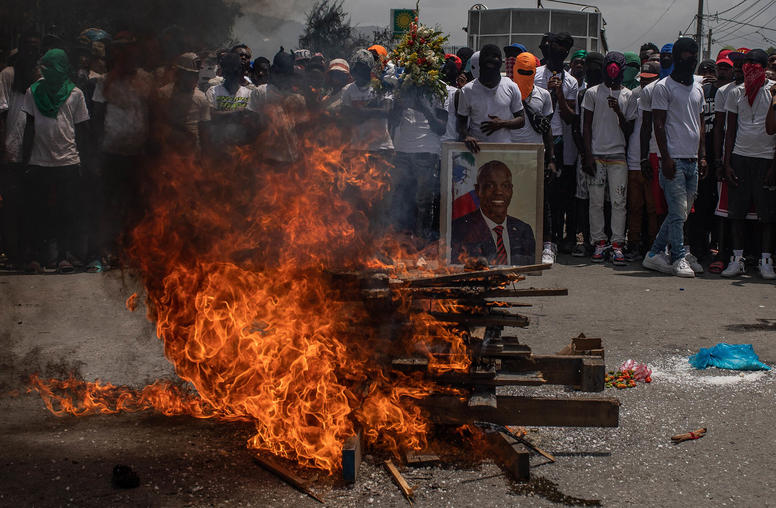
Wanted: A Reset of Haiti Policy
Haiti’s governance vacuum triggered by President Jovenel Moïse’s assassination in July 2021 shows few encouraging signs. Violence, notably around Port-au-Prince, has not only grown in lethality, but politically has become the central issue shaping domestic and international discussions. The imminent expiration of acting Prime Minister Ariel Henry’s term in office on February 7 means Haiti’s political crisis is on course to become more intransigent.

China-Colombia Relations are Growing, if Slowly
Colombian President Gustavo Petro’s visit to Beijing in October amounted to a notable — if quite small — step forward for China and Colombia, building on growing trade and other ties, while also laying the groundwork for cooperation on issues, such as media and security, which China has promoted across the region.

Understanding Pakistan’s Election Results
Days after Pakistan’s February 8 general election, the Election Commission of Pakistan released the official results confirming a major political upset. Contrary to what most political pundits and observers had predicted, independents aligned with former Prime Minister Imran Khan’s Pakistan Tehreek-e-Insaf (PTI) won the most seats at the national level, followed by former Prime Minister Nawaz Sharif’s Pakistan Muslim League-Nawaz (PML-N), the Pakistan Peoples Party (PPP) and the Muttahida Qaumi Movement (MQM). No party won an absolute majority needed to form a government on its own. The resultant uncertainty means the United States may have to contend with a government that is more focused on navigating internal politics and less so on addressing strategic challenges.
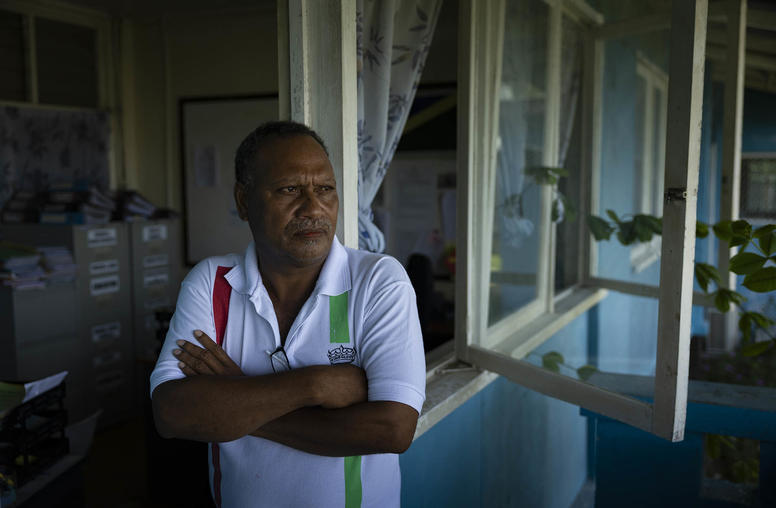
Malaita and the Provincial-National Divide in Solomon Islands
In 2019, Malaita Province in Solomon Islands made geopolitical headlines when its former premier, Daniel Suidani, came out against the country’s closer bilateral relations with China. As a result of his stance, Suidani was removed from his position in February 2023.
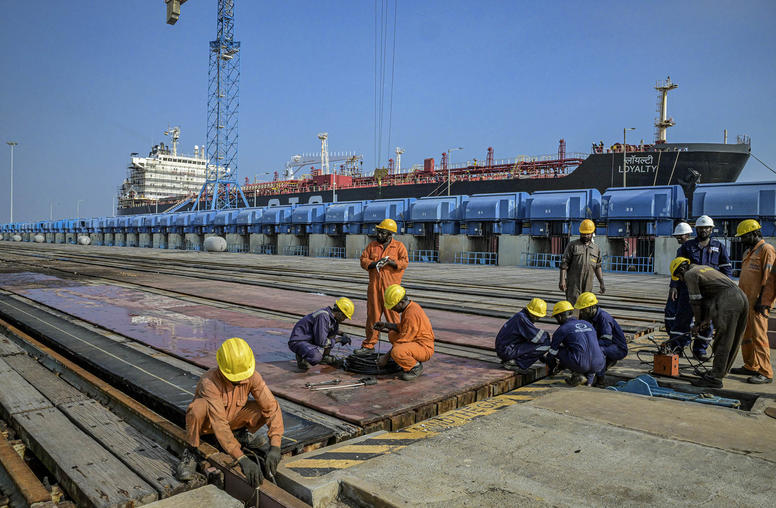
What’s the Deal with INDUS-X?
There was no shortage of splashy headlines during Indian Prime Minister’s trip to Washington last June. However, the launch of the U.S.-India Defense Accelerator Ecosystem (INDUS-X), a joint technical initiative focused on building an “innovation bridge” between the two countries, went relatively unnoticed.